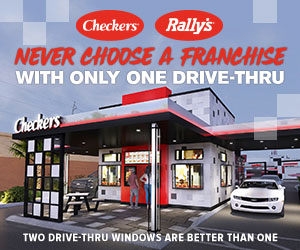Who (Really) Is a Franchisee?
Recently, janitorial supply companies have been the subject of litigation in which the franchisees claimed that instead of being independent contractors, they were in fact employees of the franchisor.
On the issue of improper classification as an independent contractor rather than as an employee, in Juarez v. Jani-King of California, Inc. (2012), a California district court granted Jani-King's motion for summary judgment, ruling that the franchisor did not exercise sufficient control over the plaintiffs to render them employees. Despite the fact that Jani-King imposed a number of controls on the franchisees, these controls were no greater than necessary to protect its trademark, trade name, and goodwill.
Contrast this decision with the line of cases known as Awuah v. Coverall that have made their way through the Federal District Court of Massachusetts (Awuah v. Coverall, N. Am., Inc., 2010; a.k.a. Awuah I and Awuah II) and the state court system (2011). In Awuah I, the judge ruled that the Coverall franchisees were misclassified as independent contractors and found them to be employees. The district court judge certified questions to the Massachusetts state court for a determination. The state court ruled that Coverall as an employer, not as the franchisor, was required to repay "franchise fees" because in this context they amounted to requiring an employee to buy its job from an employer and was violative of public policy. Additionally, payments made by the employee (franchisee) for workers' compensation insurance were recoverable because it is against public policy to require an employee to agree that it is responsible to obtain and pay for workers' compensation insurance.
Another recent case in the janitorial supply setting, Hayes v. Enmon Enterprises, LLC, dba Jani-King of Jackson and Jani-King Franchising, Inc. (2011), has raised eyebrows because of its holding that a franchisor may be vicariously liable for the negligence of its franchisee. In this case, Jani-King, in its motion for summary judgment, was unable to convince a U.S. district court judge in Mississippi that it was not liable as a matter of law when a customer of one of its franchisees slipped and fell on the restroom floor and injured himself. The injured party claimed there was no "wet floor" sign warning of the wet conditions. The franchisor was unsuccessful in its motion for summary judgment in part because the judge held that the franchise agreement more closely resembled the characteristics of an employer-employee relationship.
Looking at 10 factors delineated by the Mississippi Supreme Court to establish an employer-employee relationship, the court found there were five factors suggesting that the franchisee was an independent contractor and five factors suggesting an employer-employee relationship. Although a close question, the court ruled that the franchise agreement demonstrated such a level of control over the franchisee's conduct that it was unwilling to find an independent contractor relationship was created. It remains to be seen what will happen when the case goes to trial, but because slip-and-fall cases routinely occur in franchised locations, and rarely has a franchisor been held vicariously liable for the negligent acts of its franchisee, this will be an important case to follow.
Another interesting twist in the area of properly classifying the relationship between a franchisor and franchisee is insurance agents. When Allstate New Jersey Insurance Company took actions to terminate some of its insurance agents for failure to meet certain, expected results, one agent filed suit (Marco DeLuca v. Allstate New Jersey Insurance Company; unreported Bergen County Superior Court) claiming he was a franchisee who was entitled to the protection of the New Jersey Franchise Protection Act, which provides that there must be good cause for termination. The case is set for summary judgment, and attempts to remove it to federal district court have been unsuccessful as the district court has remanded the case back to the Superior Court of New Jersey. Connecticut has ruled in the past that insurance agents may be franchisees (Charts v. National Insurance Company, 2005), while other states have not elevated insurance agents to the status granted to a franchisee.
Another widely used business structure is the supplier-distributor relationship. Often, when the distributor sells less of the supplier's product than expected, the supplier will terminate the relationship. When faced with termination, the distributor will often look at its supplier and try to change the relationship to one of franchisor-franchisee so it receives the protection state franchise laws provide.
In Echo v. Timberland Machines & Irrigation, Inc. (2011), Timberland, a Connecticut-based distributor of Echo's products, was given notice of termination and unpaid invoices. Timberland counterclaimed that Echo violated the Connecticut Franchise Act. To receive protection under the act, Timberland had to establish that its business was substantially associated with the Echo trademark. Because its Echo sales accounted for only 30 to 35 percent of its total sales and gross profits, it was unable to do so. The Illinois court, applying Connecticut law, granted summary judgment for Echo, finding that because Timberland's business with Echo never amounted to more than 50 percent of its business, they were not substantially associated with each other and therefore were not franchisor and franchisee. In 2011, the Seventh Circuit Court of Appeals affirmed the district court's granting of summary judgment.
These cases illustrate the lengths to which parties will go to either establish a franchise relationship or disassociate from one another, in order to make the franchisor-franchisee relationship into something not originally contemplated when the parties first met and signed a franchise agreement or entered into a business relationship.
Richard S. Mulligan is a partner in the Columbus, Ohio, office of Roetzel & Andress and represents franchisors and franchisees in his business practice. Contact him at 614-723-2035.
Share this Feature
Recommended Reading:
FRANCHISE TOPICS
- Multi-Unit Franchising
- Get Started in Franchising
- Franchise Growth
- Franchise Operations
- Open New Units
- Franchise Leadership
- Franchise Marketing
- Technology
- Franchise Law
- Franchise Awards
- Franchise Rankings
- Franchise Trends
- Franchise Development
- Featured Franchise Stories






 The franchise legal listed above are not related to or endorsed by Franchise Law News or Franchise Update Media Group. We are not engaged in, supporting, or endorsing any specific franchise, business opportunity, company or individual. No statement in this site is to be construed as a recommendation. We encourage prospective franchise buyers to perform extensive due diligence when considering a franchise opportunity.
The franchise legal listed above are not related to or endorsed by Franchise Law News or Franchise Update Media Group. We are not engaged in, supporting, or endorsing any specific franchise, business opportunity, company or individual. No statement in this site is to be construed as a recommendation. We encourage prospective franchise buyers to perform extensive due diligence when considering a franchise opportunity.